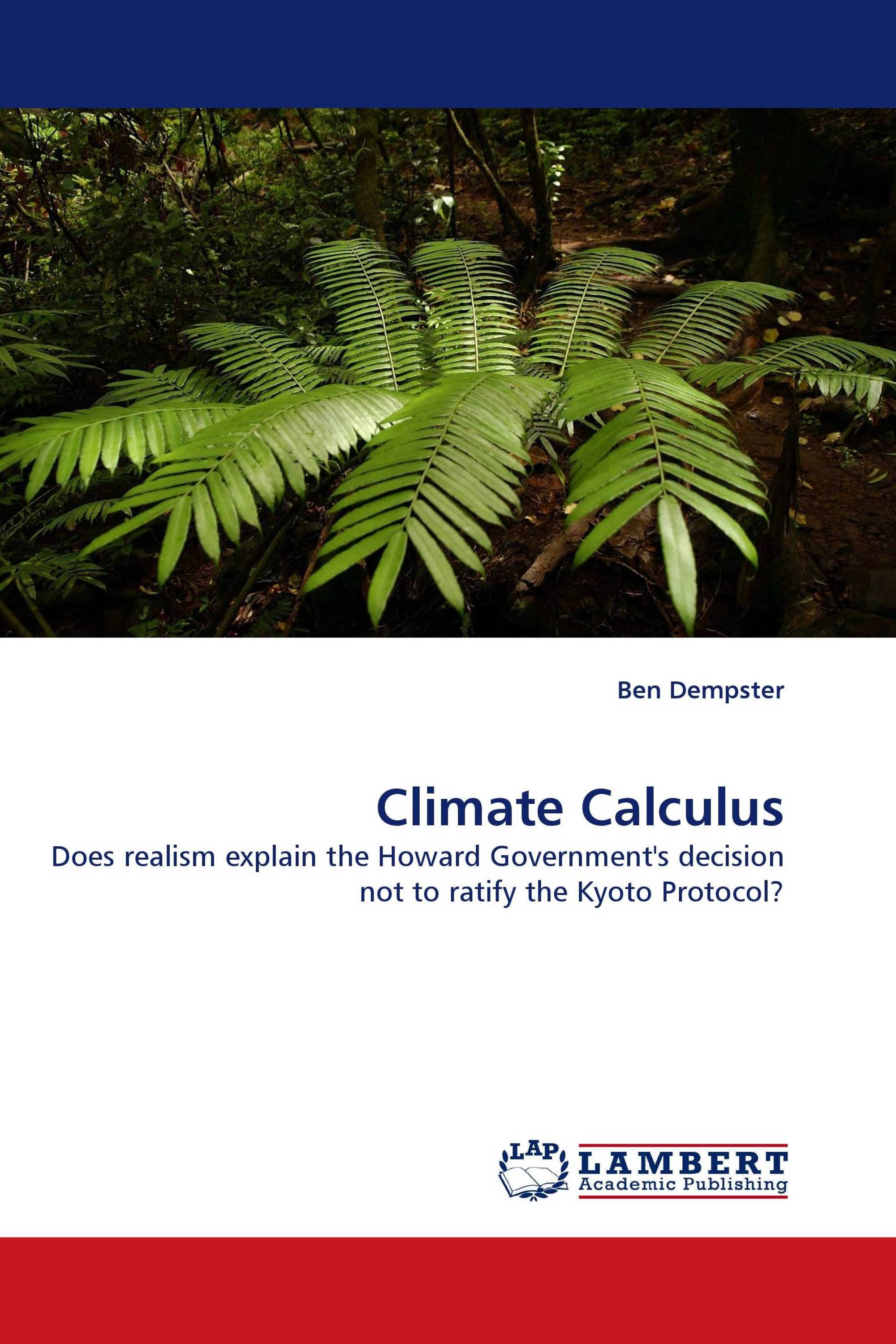Climate Calculus
Does realism explain the Howard Government''s decision not to ratify the Kyoto Protocol?
LAP Lambert Academic Publishing ( 2010-05-20 )
€ 59,00
Climate change caused by greenhouse gas emissions has the potential to cause widespread damage to the environment. A large number of countries negotiated the Kyoto Protocol, with the goal of limiting these emissions. Australia under the Howard Government initially played an important part in these negotiations, but refused to ratify the Protocol. The government cited the lack of binding targets on developing countries and the potential for harm to the Australian economy as the reasons it rejected the agreement. International relations theory studies large-scale political forces and analyses their interplay in the global political system. Realism is a model of international relations that views countries as self-interested, security-driven bodies that exist in a state of international anarchy. This study examines whether realist theory explains the Howard Government’s decision not to ratify the Kyoto Protocol. Based on thematic analysis of textual data taken from official political archives and newspapers from 1998–2004, it suggests that realist theory does provide an adequate explanation of the Howard Government’s rejection of the Kyoto Protocol.
Book Details: |
|
|
ISBN-13: |
978-3-8383-0801-2 |
|
ISBN-10: |
3838308018 |
|
EAN: |
9783838308012 |
|
Book language: |
English |
|
By (author) : |
Ben Dempster |
|
Number of pages: |
160 |
|
Published on: |
2010-05-20 |
|
Category: |
Political science |




